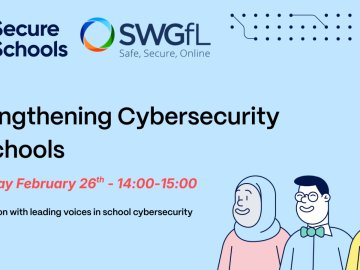In light of the recent news regarding schools changing their regular routine for the foreseeable future, there is probably a lot of uncertainty right now about many things. Remote learning has now come straight back into regular practice, video conferencing services are being used full time and safeguarding procedures have needed to adapt to the home setting.
Although we have been through this before, it’s always important to be aware of what support and guidance there is around online safety. We have a vast range of resources, products and guidance that have been put together for this very situation. If you are wondering how best to manage your online safety responsibilities, then explore the list below to see what will suit your requirements.
Helpline Support for Lockdown
POSH (Professionals Online Safety Helpline)
The free helpline service, giving professionals advice on online safety concerns including safeguarding issues when working from home.
Revenge Porn Helpline
If you are the victim of intimate image abuse throughout lockdown, get in touch with the helpline for free support and guidance
Report Harmful Content
If you have seen something online that you think causes harm then reporting it may result in the removal of content.
Online Safety Resources for Lockdown
Safe Remote Learning
Schools will be considering moving learning online. Here's the breakdown on organising classes online so that safeguards are adequately considered and are trouble-free.
Education Professionals Guide To Remote Learning
Whether it’s managing your workspace, communicating with your colleagues, working with students or considering data protection, there are number of things to consider if you’re an education professional working from home.
Video Conferencing: Safeguarding & Privacy
Lots of online platforms will be hosting online lessons. Make sure you’re aware of what each platform provides in terms of security as well as what safeguarding measures need to be considered.
Choosing Online Tutors
Tutoring online will include unsupervised activities with children, such as unsupervised teaching and training children. Leaders should therefore ensure that they complete all appropriate suitability checks on companies and individuals before hiring.
Online Safety Services for Lockdown
Project Evolve
Digital learning is now more important due to more and more people spending time online. Using the Project Evolve toolkit, education professionals can teach their students about staying safe online in a way that’s accessible and relevant to their group.
Whisper Anonymous Reporting Tool
Anonymous reporting is a safeguarding responsibility that every school needs to have. Now with more pupils at home, the lines of communication have been blurred between the school and its’ community. Whisper allow pupils, parents and staff to report concerns anonymously through SMS or online forms.
Reputation Alerts
Schools are now adapting to a lot of change and you could be concerned about how it will affect your reputation. Monitoring your online mentions can allow for quick response to issues and concerns that may arise. Reputation Alerts scans online mentions and reports to you.
Online Safety Guidance For Lockdown
Social Media Checklists
It’s no doubt that social media platforms will be used more throughout the lockdown period. As parents, you can brush up on what privacy and security settings are available for Twitter, Snapchat, Facebook, Tiktok, Instagram, Roblox & Netflix in our social media checklists.
Microsoft Teams
Video conferencing can be a bit confusing if you’re not accustomed to it and Microsoft Teams is a popular choice for online lessons. Find out about how to set up meetings and understand how to stay safe when online.
Zoom
Another popular choice for video conferencing. We also highlight some of the many features and benefits when using Zoom along with how to stay safe when online.
Online Safety Guidance for Parents
This printable pocket size leaflet gives parents and carers points to consider along with useful links to help you understand how to deal with online situations when directly relating to children and young people.






